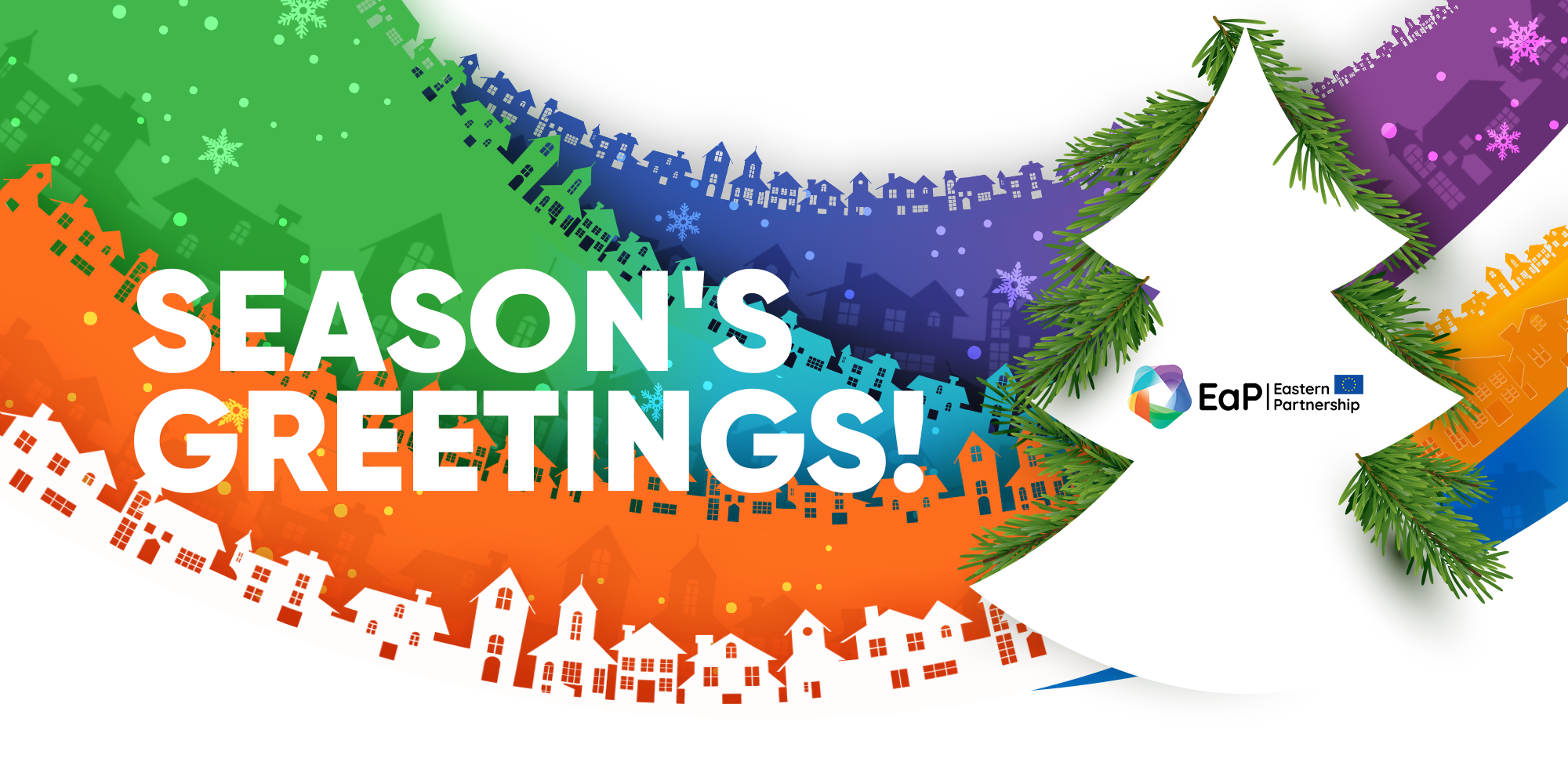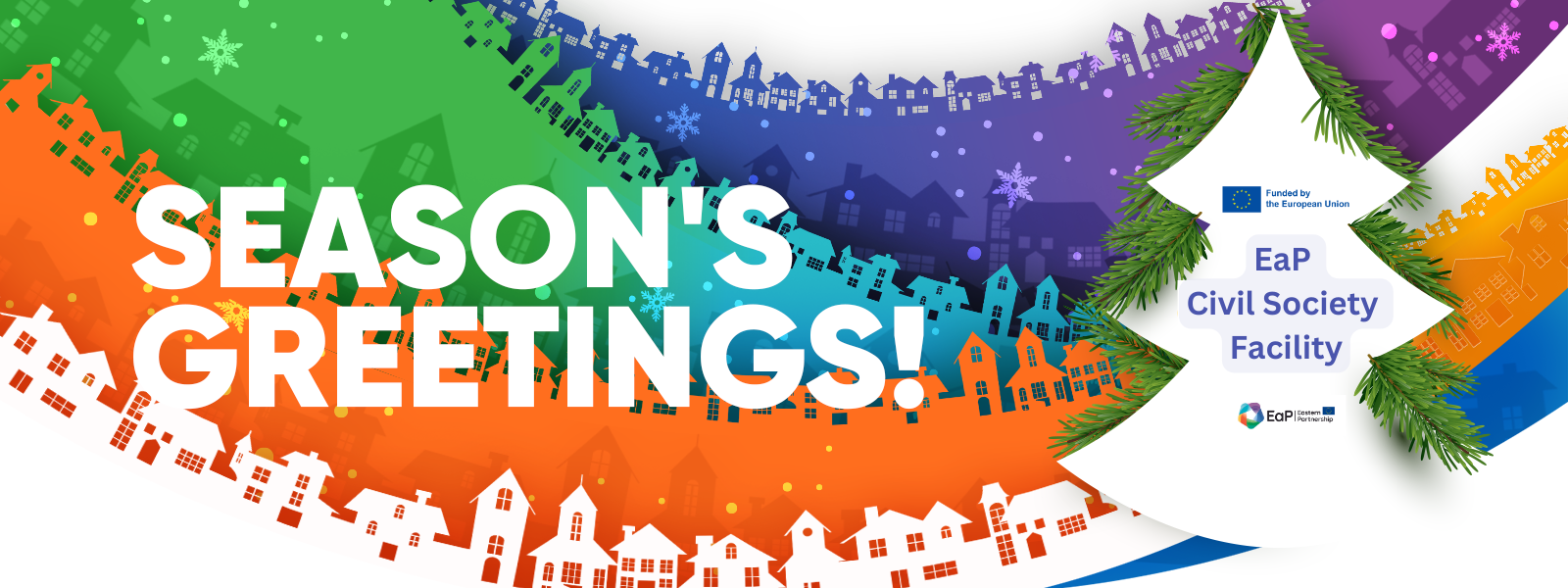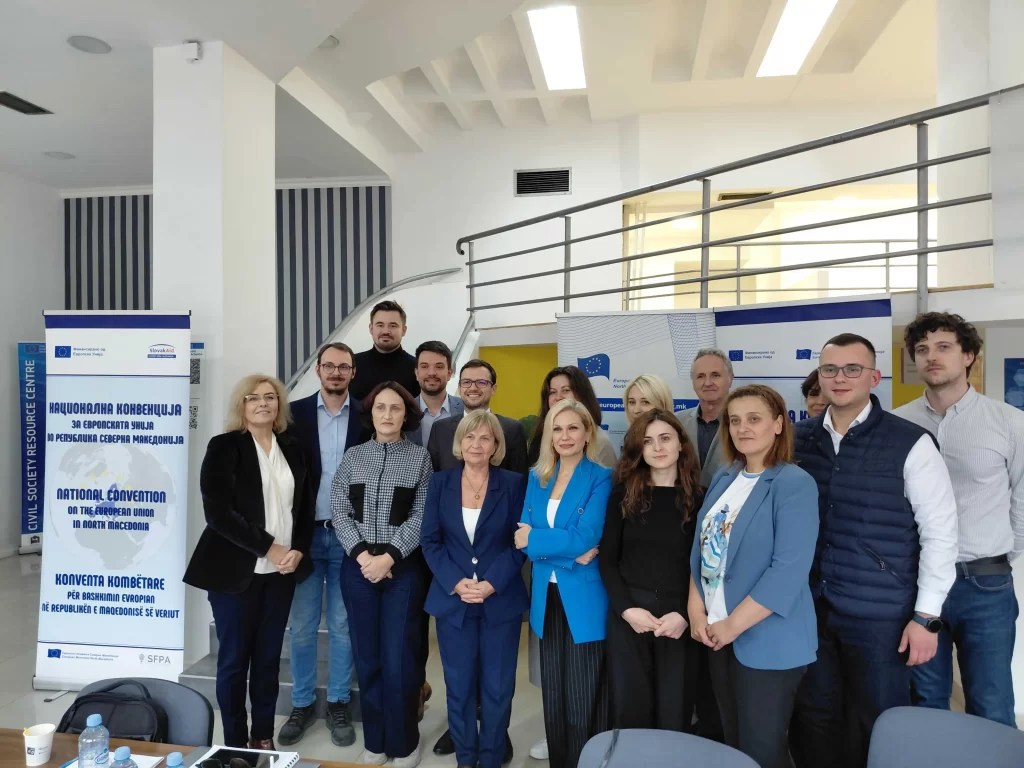 On 16-17 October 2025, civil society representatives from Georgia, Moldova, and Ukraine took part in a Study Visit to North Macedonia to exchange experiences with local organisations actively contributing to the country’s EU integration process. The visit was organised by the EU-funded Eastern Partnership Civil Society Facility Project with local assistance from a Macedonian partner, the European Policy Institute.
On 16-17 October 2025, civil society representatives from Georgia, Moldova, and Ukraine took part in a Study Visit to North Macedonia to exchange experiences with local organisations actively contributing to the country’s EU integration process. The visit was organised by the EU-funded Eastern Partnership Civil Society Facility Project with local assistance from a Macedonian partner, the European Policy Institute.
North Macedonia, which has held EU candidate status for almost two decades, provided a rich context for learning about the role of civil society in supporting national reforms and engaging with government institutions. The Study Visit participants met with a range of stakeholders, including the EU Delegation to North Macedonia, the European Policy Institute, members of the National Convention on the EU Integration for North Macedonia, among others.
Participants were particularly impressed by the high level of civil society expertise mobilised to support the reforms required for EU integration. They also noted the effectiveness of the methodologies used by the National Convention – a platform that brings together civil society, government, and political opposition to discuss EU integration. “The coalition building of the Convention was impressive. Polarisation was avoided through the engagement of political opposition being a mandatory element,” noted Dan Nicorici, from the Centre for Policies and Reforms (Moldova).
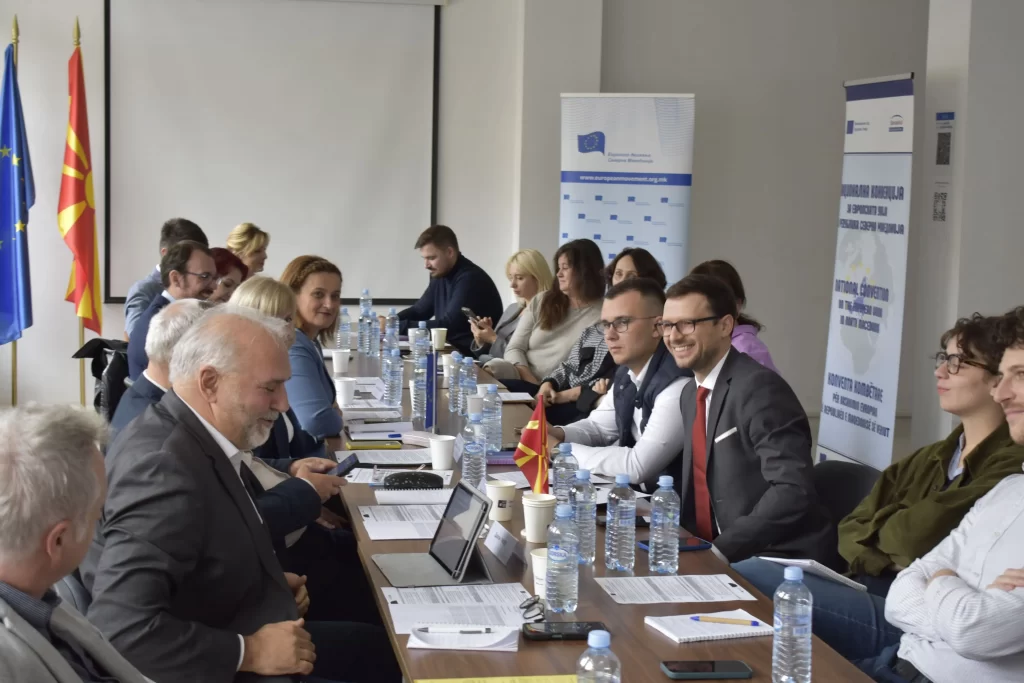 The role of CSOs was recognised as crucial in communicating about the reform process at the national level; however, this communication had not always been smooth, as noted by Georgian participant Khatuna Kvintskhadze: “One of the most striking insights shared by a North Macedonian CSO representative was that, in previous years, miscommunication and unrealistic expectations, partly fuelled by CSOs themselves, led to widespread public disappointment. This lesson stood out as particularly important to me.”
The role of CSOs was recognised as crucial in communicating about the reform process at the national level; however, this communication had not always been smooth, as noted by Georgian participant Khatuna Kvintskhadze: “One of the most striking insights shared by a North Macedonian CSO representative was that, in previous years, miscommunication and unrealistic expectations, partly fuelled by CSOs themselves, led to widespread public disappointment. This lesson stood out as particularly important to me.”
Building on Khatuna’s observation, other members of the Study Visit group emphasised their commitment to fostering engagement on EU integration at the local level. “We will continue to invest in capacity-building activities, focusing primarily on civil society organisations. Our goal is to help them be better prepared to engage constructively with the government, while also strengthening their role as independent watchdogs,” shared Stanislav Ghiletchi from the Institute of European Policies and Reforms (Moldova).
The hosts in Skopje expressed their appreciation for the participants’ enthusiasm and their thoughtful, well-informed reflections on North Macedonia’s EU integration process. The group was welcomed by Mr. Steffen Hudolin, Head of Cooperation at the EU Delegation to North Macedonia, who highlighted the value of dialogue and cooperation within civil society for EU engagement. Dr. Simonida Kacarska, Director of the European Policy Institute, stressed the importance of building networks and solidarity among CSOs from different candidate countries.
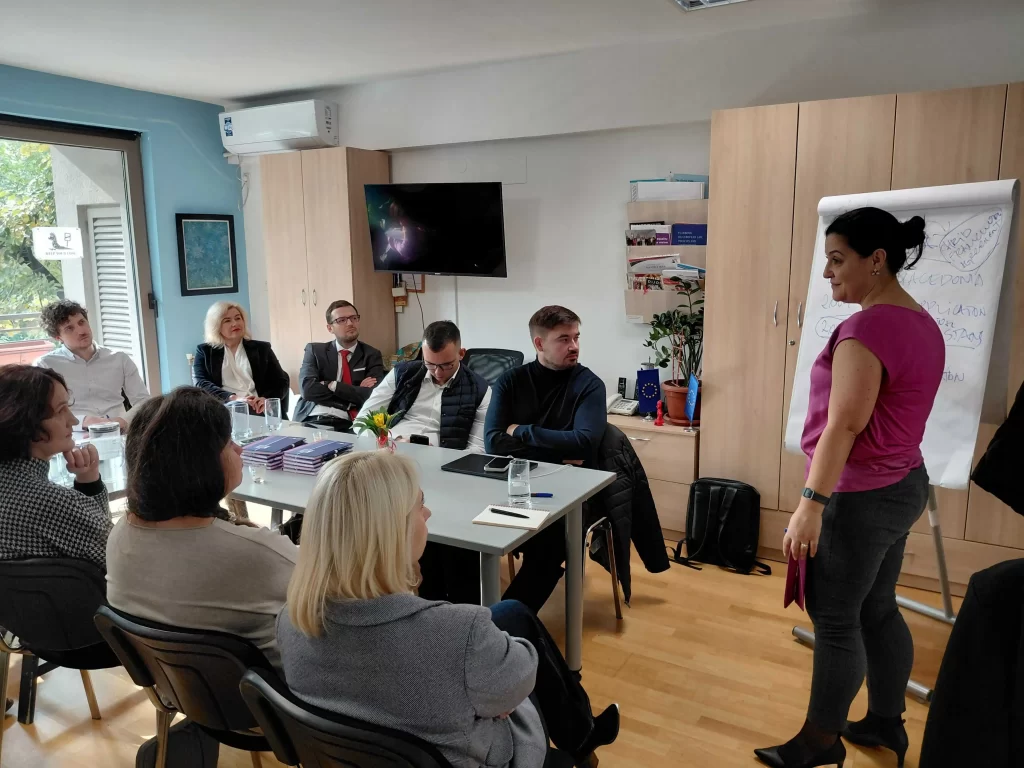 Concluding the visit, Iryna Kuropas, from the Local Economic Development Agency of Yavoriv District (Ukraine), underlined the long-term nature of European integration: “The experience of North Macedonia is illustrative: the path to the European Union is not a one-time political campaign, but a long-term process that requires coordination, transparency, persistence, and accountability.”
Concluding the visit, Iryna Kuropas, from the Local Economic Development Agency of Yavoriv District (Ukraine), underlined the long-term nature of European integration: “The experience of North Macedonia is illustrative: the path to the European Union is not a one-time political campaign, but a long-term process that requires coordination, transparency, persistence, and accountability.”
The visit reminded everyone that while each country’s road to the EU is unique, the values of dialogue, cooperation, and commitment are universal.
Background information:
This Study Visit was organised by the Eastern Partnership Civil Society Facility Project funded by the European Union. The Project is working in the six EaP countries (Armenia, Azerbaijan, Belarus, Georgia, Moldova and Ukraine) to strengthen the role and increase the capacity of civil society organisations and activists.



